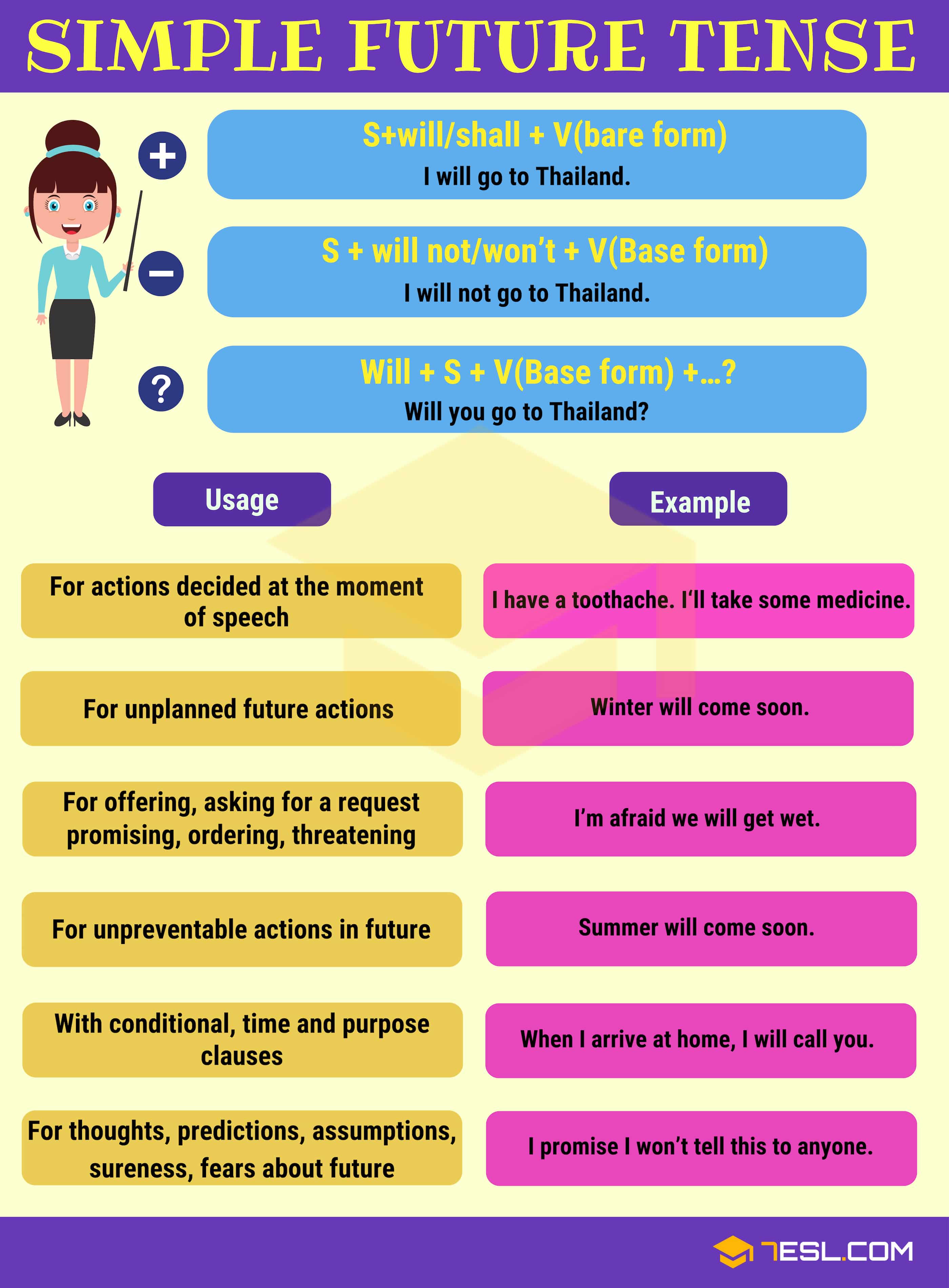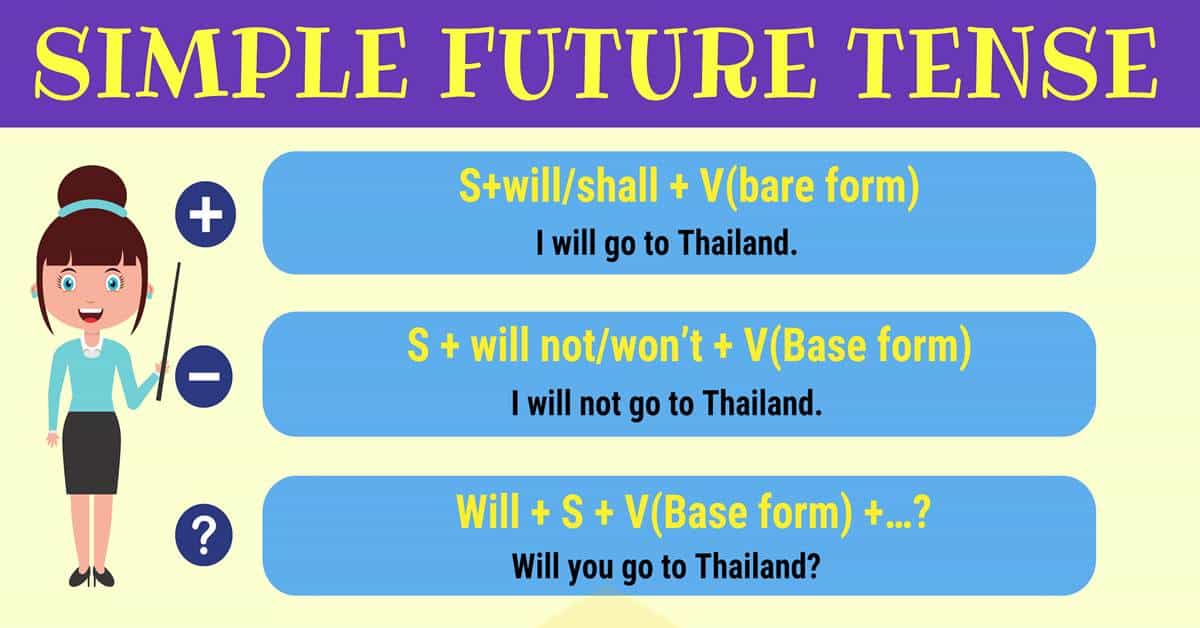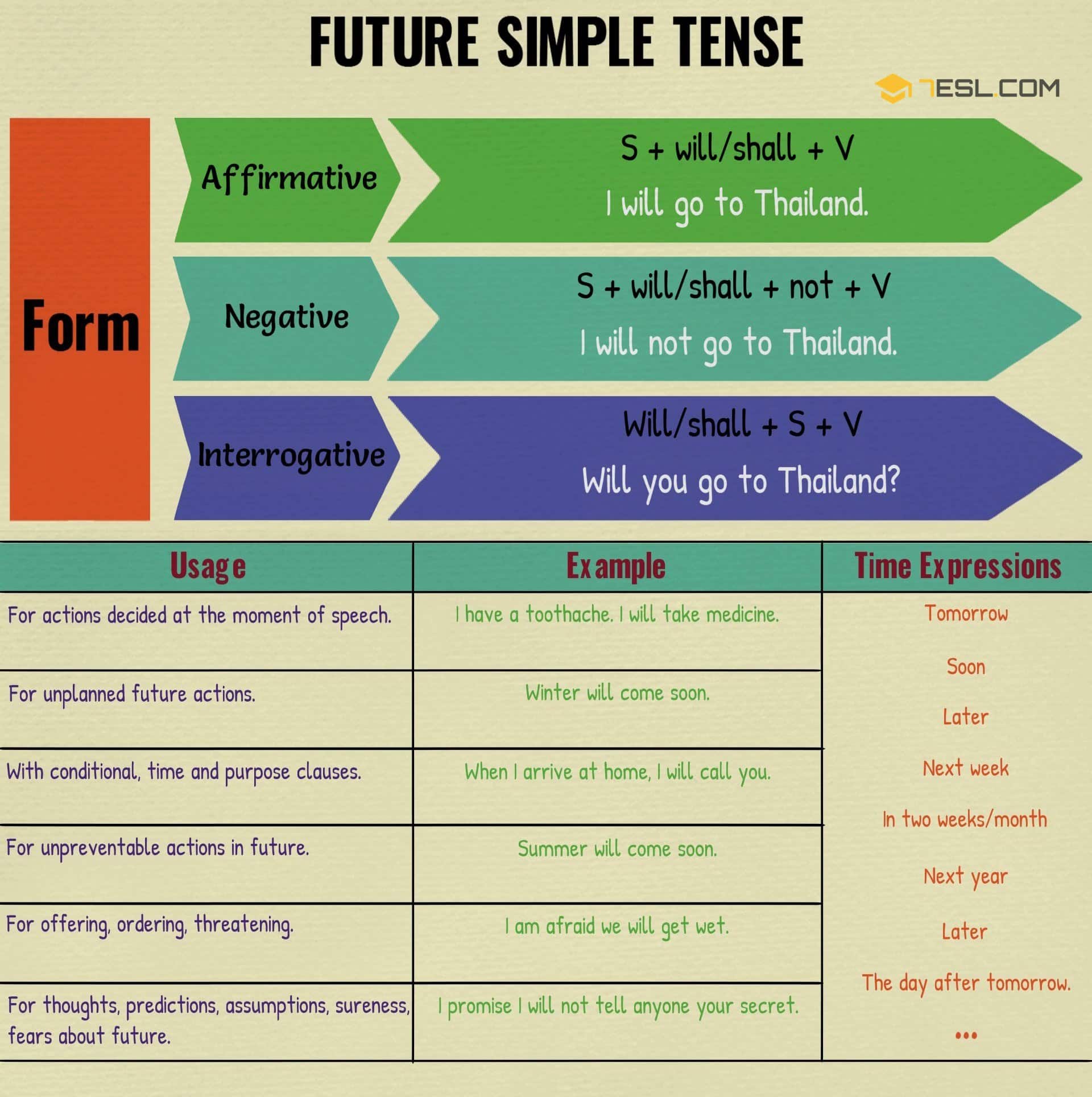Simple Future Tense! In this section, we will be looking at the various rules surrounding the use of the simple future tense and delving into much greater detail.
Simple Future Tense
If you wish to speak about an event that will happen in the future then you will need to use the simple future tense. This is a great way of adding knowledge of the English language which will enable you to talk in much more detail about things such as your future plans or things that you know are coming up.
The simple future tense indicates that an action is in the future relative to the speaker or writer. There are no inflected forms for the future in English (nothing like those –ed or -s endings in the other tenses).
The formula for the future simple is will + V(Base form).
Positive Sentence
S + will + V(Base form) + object…
Example:
I will go to Thailand.
Negative Sentence
S + will not/won’t + V(Base form) + object…
Example:
I will not go to Thailand.
Question form
Will + S + V(Base form) +…?
Example:
Will you go to Thailand?
How to Use the Simple Future Tense
Learn how and when to use the future simple tense in English with helpful grammar rules, example sentences, videos and ESL worksheets.
The future simple tense is used:
For Actions Decided at the moment of Speech
Example:
I have a toothache. I‘ll take a medicine.
For Unplanned Future Actions
Example:
Winter will come soon.
For Offering, Asking for a Request Promising, Ordering, Threatening
Example:
I’m afraid we will get wet.
For Unpreventable Actions in Future
Example:
Summer will come soon.
With Conditional, Time and Purpose Clauses
Example:
When I arrive at home, I will call you.
For Thoughts, Predictions, Assumptions, Sureness, Fears about Future
Example:
I promise I won’t tell this anyone.
Simple Future Tense Chart | Picture








0 Comments